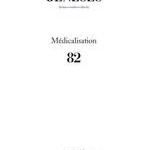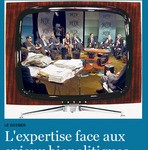Colloque – Corps dévots ou grands spectacles ? S’enrichir en territoire sacré
Mercredi 07 septembre 2011 | Münster (48149, Allemagne)
Devoted Bodies or Great Shows? Making Profit on Sacred Areas
5th International Symposium of CORPUS
Les 7 et 8 septembre 2011, le cinquième symposium international de CORPUS, Groupe international d’études culturelles sur le corps rassemblera à Munster des chercheurs venus d’une grosse demi-douzaine de pays autour du thème: « Corps dévots ou grands spectacles ? S’enrichir en territoire sacré ».
Westfälische Wilhelms-Universität Münster
Escuela Nacional Superior de Folklore JosÉ María Arguedas
Universidad Nacional DE CATAMARCA
WEDNESDAY, SEPTEMBER 7th
OPENING SESSION, 9h 00-10 h 00
Welcome and first words by Susanne Pinkernell-Kreidt & Salomé Deboos (Westfälische Wilhelms-Universität Münster, Germany).
CHANGING PROCESS IN RITUALS: FACING MODERNITY, 10 h 00 – 12 h 30
Chair: Arne Steinforth (Westfälische Wilhelms-Universität Münster, Germany)
Mei- Ling Chien (National Chiao Tung University, Taïwan), Hmub Rural Immigrants and Their Narrations of Ritual, Village and Modernity
Haruka Okui (Graduate School of Education Kyoto University, Japan), Un/Changed Relationship with the Deity: Ritual for Kingdom, or for Ordinary Lives
Verónica Auza Aramayo (ALBA Cultural/Fundación ASUR, Bolivia), Fish-women of the desert: Bodies’ memories in traditional spreads
Lunch
CHANGING PROCESS IN RITUALS: FACING TOURISTS’ INTERESTS, 14 h 00 – 19 h 00
Chair: Barbara Meier & Julia Koch (Westfälische Wilhelms-Universität Münster, Germany)
Abdul Majid Baba (University of Kashmir Srinagar, India), Holy Tourism in Kashmir
Anja Wagner (Westfälische Wilhelms-Universität Münster, Germany), From “holy” spring to swimming pool – a village, a temple, and tourism in North India
Alcira Inés Olima (Judicial del NOA, Argentina), Desacralizing Capitalism at the Pachamama Celebration and the people of Laguna Blanca, Belen, Catamarca
Tea break
Salomé Deboos (Münster University, Germany), Business and the Economy of Merit in Buddhism in Zanskar, Indien Himalayas
Daniel Orlando Díaz Benavides (Esc. Nac. Sup. de Folklore José María Arguedas & National University of San Marcos, Peru), Bodies, faith and trade in the Snow Star: trekking to Qoyllur Riti
THURSDAY, SEPTEMBER 8th
IMPACT OF POLITICS ON MORAL AND FAITH, 9 h 00 – 12 h 30
Chair: Katherina Glaab (Westfälische Wilhelms-Universität Münster, Germany)
Elsa del Carmen Ponce (National University of Catamarca, Argentina), Between Liturgy and Politics or on the Body as an Agency of the Semiosis of Subjectivity
José Luis Grosso (National University of Catamarca, Argentina), Devotion, Representation, Spectacle. Dramatics of Faith and Politics of Sacred in Northern Argentinean Popular Religiousness
Cecilia Meléndez, María Lencina, Ana Griselda Díaz, José Yuni, & Claudio Urbano (National University of Catamarca, Argentina), Body and Space in School Life: Sacred and Ritual as a Moralizing Control and Youth in the Middle School
Lidia Elena Maluga Guillet (National University of Catamarca, Argentina), The Feast of the Chiqui and the Chaya in the Northwest of Argentina
Lunch time
CREATING NEW SACRED AREAS AND RITUALS, 14 h 00 – 17 h 00
Chair: Helene Basu (Westfälische Wilhelms-Universität Münster, Germany)
Stephen Engelkamp (Münster University, Germany), Holiday in Cambodia? On the Politics of Memorizing the Khmer Rouge
Peter Kaiser (University of Bremen, Germany), Ethno-economics: Medicine and Religion in a changing environment.
José Yuni & Claudio Urbano (National University of Catamarca, Argentina), Religion and Aging Commodification
Mario Tanga (Science historian, Arezzo, Italy), Sport: a « New » world-wide religion- like body devotion
Final words
****
All the sessions of the symposium will be held at the Münster University, Hüfferstrasse, 61 Vortragssaal, 48149 Münster. This event will be open to interested researchers, students, teachers, journalists, etc. Participation will be free, but an advance registration is recommended.
Contact:
Salomé Deboos salome.deboos@googlemail.com


